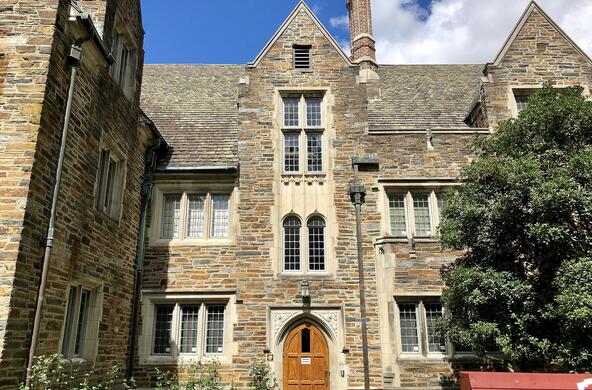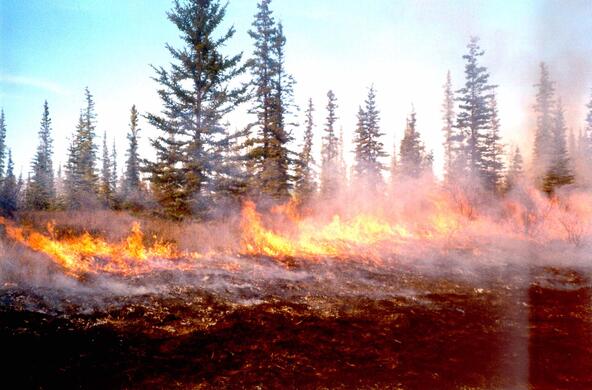Cary Institute Research Fellow Sarah Batterman has been awarded a Philip Leverhulme Prize for her work on tropical forests and the role of nitrogen in forest recovery and carbon sequestration. Conferred by the London-based Leverhulme Trust, the £100,000 grants are awarded to early career researchers whose work has had international impact and shows promise for future success. Recipients have also demonstrated leadership in their respective fields.
Sarah Batterman joined Cary Institute as a Research Fellow in 2018 and holds an appointment as Associate Professor in the School of Geography at the University of Leeds, UK.
One of the greatest challenges facing ecologists today is understanding how terrestrial ecosystems can help offset human carbon emissions and slow climate change. Sarah Batterman's research uses large-scale ecosystem experiments, field observations, and modelling to explore this problem.
Batterman, with colleagues, discovered that leguminous trees in tropical forests play an important role in forest recovery following disturbance such as clearcutting. These trees, also called ‘nitrogen fixers’, form symbiotic relationships with soil microbes. Together, the trees and microbes ‘fix’ gaseous nitrogen into a form that can fertilize plants.

Through this process, tropical legumes provide over half the nitrogen needed to support forest recovery. This nitrogen boost helps trees grow and store more carbon. By removing carbon from the atmosphere, tropical forests play a key role in trapping greenhouse gases and buffering effects of climate change.
Thanks to new funding from the Leverhulme Trust, Batterman’s team will be able to expand this work.
Batterman explains, “I'm excited to explore connections between plants and their microbiome – especially how trees and microbial partners facilitate tropical plant growth and recovery. For example, nitrogen-fixing soil bacteria can provide nitrogen, and fungi living on plants’ roots can supply phosphorus – both essential nutrients for plants.
Recovered forests offer an important carbon sink that offsets human carbon emissions. My group will be able to examine this in detail with help from the Philip Leverhulme Prize.”
One of Sarah’s current projects is an ecosystem-scale experiment in Panama, where she and collaborators are fertilizing large swaths of forests to test how nutrients limit recovery post-deforestation.
“The Leverhulme funding will allow us to use the Panama experiment to gain a more powerful understanding of how plants survive in nutrient-poor soils by turning to microbes. We'll look at how trees leverage their microbiome in a smart way, and in turn, how this accelerates forest growth and carbon sequestration.”
Batterman’s work will inform tropical reforestation efforts and help policy makers, resource managers, and NGOs tailor their efforts to grow forests that are optimized for carbon storage and biodiversity gains.






